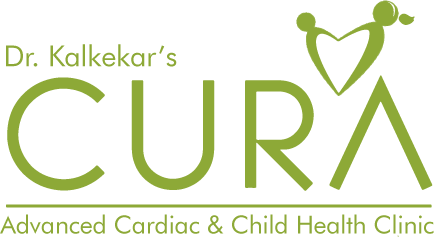Proactive Approach Every Woman Should Take for Heart Health
Heart disease is often thought of as primarily affecting men, but it's also one of the leading causes of death among women. In India, over 30% of women are diagnosed with coronary heart disease. Unfortunately, many women tend to overlook their health, unaware of the risk factors that could put them at risk. Often, they don't go for regular health checkups until they reach menopause or during pregnancy. It's essential for every woman to comprehend the importance of heart health and take proactive steps to prevent heart disease, ultimately leading to a longer, healthier life.
Understand Your Family History:
Heart disease can run in families, so knowing your family history is crucial. If your parents, grandparents, or close relatives have had heart issues or if they dealt with risk factors like diabetes, high cholesterol, or high blood pressure, you might also be at higher risk. Make it a point to talk to your family about any heart conditions or events they've experienced, and take the initiative to get tested early. Early detection can make a huge difference.
Embrace a Heart-Healthy Diet and Lifestyle:
Adopting a nutritious diet is one of the most impactful choices you can make for your heart. Add fresh fruits, vegetables, and whole grains in your regular diet. Avoid intake of sugar, salt, and trans fats, and opt for heart-healthy fats like almonds, avocados, and salmon. Regular physical activity is just as important—aim for cardiovascular exercises and strength workouts to keep your heart in top shape. Even a brisk 30-minute walk can help keep your heart healthy.
Manage Your Stress Effectively:
Chronic stress can elevate your blood pressure and increase the risk of heart attack. To protect your heart, make time for activities that reduce stress. Yoga, meditation, deep breathing exercises, and talking with loved ones can be incredibly beneficial. Enjoy hobbies like painting, reading, or spending time outdoors to relax and recharge. Reducing stress not only helps your heart but enhances your overall well-being.
Prioritize Restful Sleep:
Sleep plays a critical role in heart health. For women, getting 7 to 9 hours of sleep each night without any interruption is vital. Inadequate sleep can contribute to conditions like diabetes, obesity, and heart disease. Make sleep a priority, and create a calming bedtime routine to ensure you're getting the restful sleep your body needs.
Commit to Regular Check-Ups:
Routine doctor visits are essential for monitoring your heart health and detecting potential issues early on. Regular ECGs, cholesterol screenings, and other heart health tests can help catch any concerns before they become major problems. Don't skip these check-ups—your heart will thank you!
Limit Alcohol Consumption:
Excessive alcohol intake can increase triglyceride levels, increase blood pressure, and lead to heart disease. By limiting alcohol consumption or seeking help to control it, you can lower your risk of cardiovascular problems and improve your overall heart health.
Quit Smoking for Good:
Smoking is one of the most harmful habits for your heart. It damages your blood vessels, raises blood pressure, and contributes to plaque buildup in the arteries—factors that significantly increase the risk of heart disease. Quitting smoking is one of the most powerful steps you can take to protect your heart and improve your quality of life.
Stay Hydrated:
Proper hydration is key to keeping your heart functioning well. Drinking enough water helps maintain healthy blood volume, allowing your heart to pump blood more efficiently. Aim to drink at least eight 8-ounce glasses of water per day to stay properly hydrated.
Consider Angioplasty if Necessary:
Angioplasty is a medical procedure used to open blocked or narrowed blood vessels in the heart, helping to restore blood flow.
If you experience symptoms of coronary artery disease or have been diagnosed with significant blockages, angioplasty might be a recommended treatment.
This procedure can significantly reduce the risk of heart attack and improve heart function. It's essential to work closely with your healthcare professional to understand your options and make informed decisions about your heart health.
Early intervention can help you lead a healthier life and minimize the risks associated with heart disease. If you want to know the angioplasty cost in Seawoods, visit Dr. Kalkekar’s Cura Clinic for an accurate cost estimate and discuss various treatment options.
Take action today for your heart’s tomorrow!




